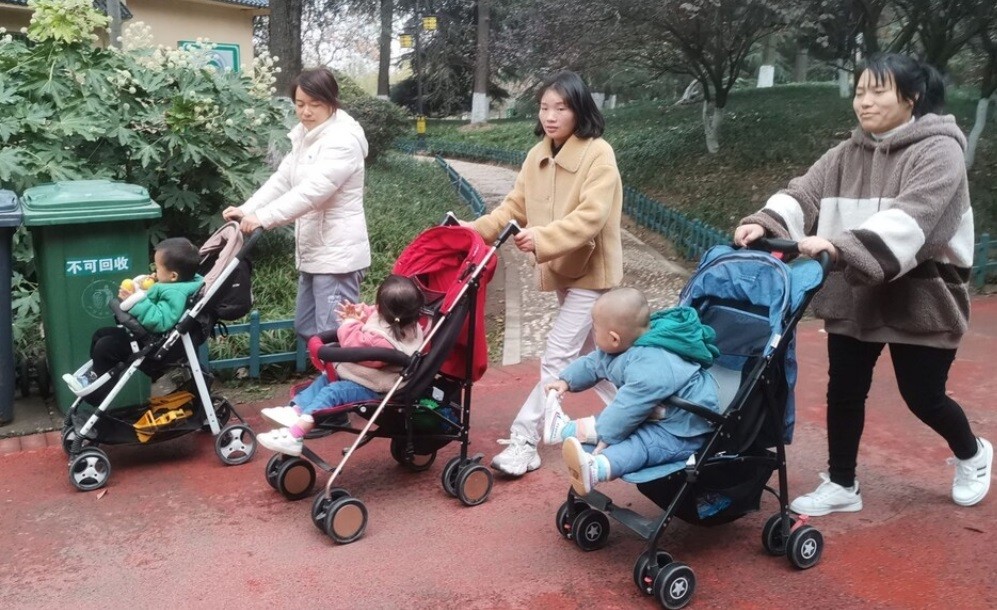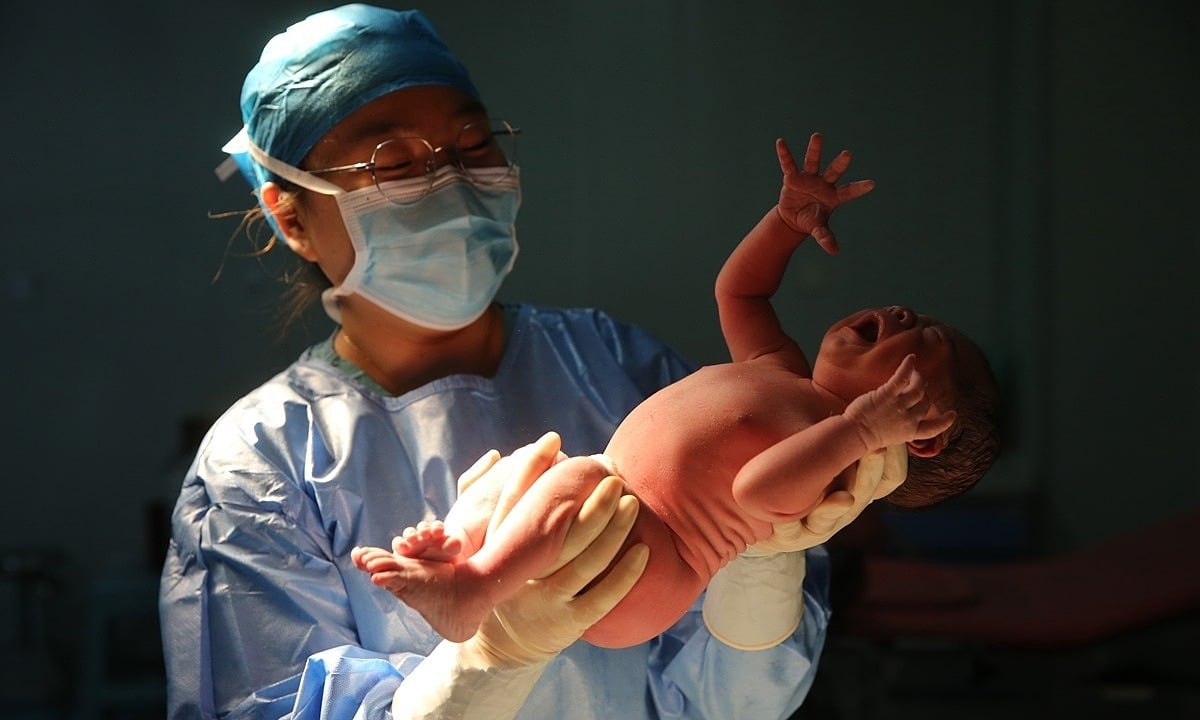
| China could end a nine-year decline in marriage registrations this year, with a rapid increase in the number of newlyweds in the first three quarters. (Source: Xinhua) |
A ray of hope for the demographic crisis
According to data released by the Ministry of Internal Affairs last week, 5.69 million couples registered their marriages in the first nine months of 2023, marking a remarkable increase of 245,000 over the same period last year. In 2022, only 6.83 million couples registered their marriages, just under half the record of 13.47 million in 2013 and just above the 6.37 million in 1979.
The increase in the number of couples registering for marriage has brought a ray of hope to the world's second-largest economy, especially in the context of a significant decline in birth rates and a rapidly aging population that pose a major demographic challenge to the Chinese economy.
“The increase in newlyweds, partly due to the postponement from the Covid-19 pandemic, has begun to show signs of recovery this year as a new normal is established,” said Peng Peng, executive chairman of the Guangdong Reform Association.
In a less favorable economic climate, marriage is emerging as a relatively accessible solution compared to finding a job or buying a home, offering couples the opportunity to pool resources, share living expenses and reduce financial risks, according to Ms. Peng.
“We still need more data from next year before we can accurately assess whether this upward trend will continue,” Peng said, noting that rising housing prices, escalating childcare costs and a challenging economic environment were key factors affecting young Chinese people’s enthusiasm for getting married.
As the birth rate has declined since the baby boom of the late 1980s, the number of young people of marriageable age has also decreased. According to the 2020 China Census Yearbook, the average age of first marriage in China has increased significantly from 24.89 in 2010 to 28.67 in 2020.
Even among married couples, the propensity to have children is declining. China’s primiparity rate—the average number of children a woman will have in her lifetime—fell from 0.7 in 2019 to 0.5 in 2022. The decline was accompanied by an increase in the average age of women having their first child from 26.4 to 27.4 over the same period.
For the first time in modern history, the number of newborns in China fell below 10 million last year, falling to 9.56 million from 10.62 million in 2021.
Gender inequality is also preventing more young women from marrying, while policies have not really made it easier for single women to have children. The growing demographic imbalance has raised concerns that economic growth will slow further as government debt soars to meet rising health and welfare costs from an aging population.
Enhancing the role of women
Recently, in a meeting with the new leadership team of the All-China Women's Federation, Chinese President Xi Jinping highlighted the important role of women in "national progress" and called on women to create "new family trends".
President Xi Jinping said that what women need to do well is to "maintain family harmony, social harmony, and national development", and at the same time "actively foster a new culture of marriage and childbirth".
Shen Yiqina, a member of the State Council and newly elected chairwoman of the All-China Women's Federation, wrote in Qiushi , a leading Chinese magazine, on November 16 that women should demonstrate the power of "half the sky." "Women hold up half the sky," a famous saying attributed to late Chinese Chairman Mao Zedong, reflects the government's commitment to promoting women's rights.
China's top official on women's issues also pledged to promote the role of the world's half in the family and provide guidance for the younger generation on the right path from dating, getting married, having children and building a happy family foundation.
“President Xi Jinping pointed out that only with a harmonious and moral family can our children grow up and our society develop healthily,” Shen Yiqina cited.
To achieve this goal, Ms. Shen Yiqina said that all levels of the federation should support women more in their work, whether working in the field of technological innovation or running a business.
She suggested that there should be events and competitions to find "model families" to inspire female employees, create a safe and friendly environment for mothers and children, and reduce the burden of family care for women.
 |
| For the first time in modern history, the number of newborns in China will fall below 10 million in 2022. (Source: Reuters) |
The All-China Women's Federation also revised its charter for the first time in five years during the reform process, emphasizing the organization's role under the leadership of the party and promoting women's work in building the country and family.
However, Carl Minzner, an expert on Chinese law and governance at Fordham University in New York and the Council on Foreign Relations (CFR), said Beijing's new views on marriage and family could face backlash from some young Chinese (especially young women) who are used to living independently and are not interested in getting married.
Amid growing demographic concerns, Beijing has also made policy adjustments, allowing people in 21 provinces and cities to register cross-border marriages from June 2023, removing the previous barrier that required young people to register their marriages in the provinces where they were born due to the household registration system that controls access to public services.
According to China's Ministry of Civil Affairs, as of the end of September 2023, there were 197,000 cross-province marriages registered in China, more than 35% of which took place after the policy was issued.
Source











































Comment (0)